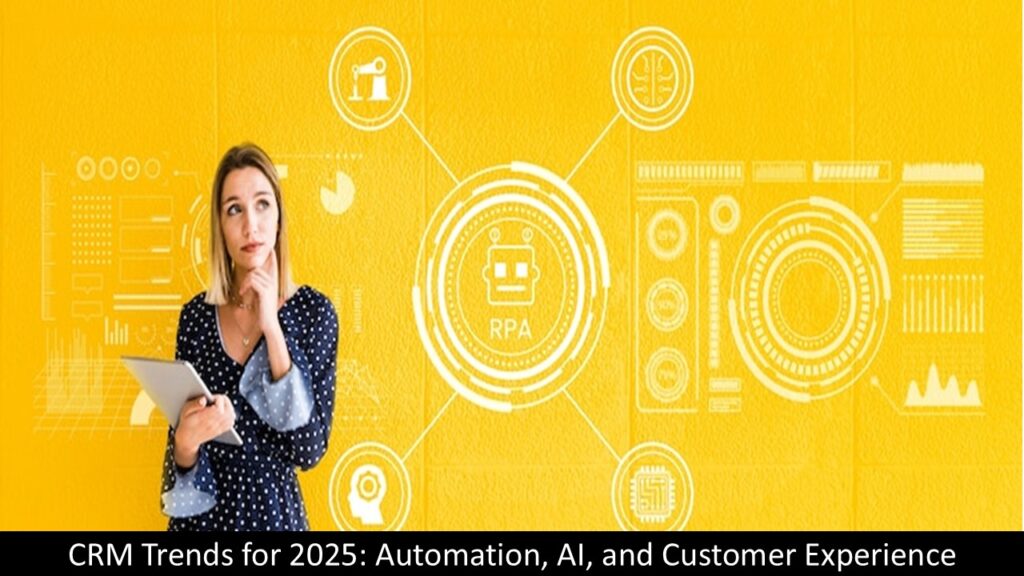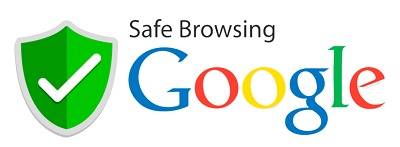CRM Trends for 2025: Automation, AI, and Customer Experience

The world of customer relationship management (CRM) is evolving at lightning speed. As we move into 2025, businesses are not just using CRM systems to store contacts or track sales — they’re leveraging these platforms as intelligent engines that power growth, personalization, and long-term loyalty.
In this article, we explore the top CRM trends for 2025 that every business should know, including the increasing role of automation, the rise of artificial intelligence, and the focus on delivering exceptional customer experience. Whether you're a startup or a large enterprise, staying ahead of these trends can help you build stronger relationships and compete in a customer-first world.
🔥 Why CRM Trends Matter in 2025
Customers today expect seamless, personalized experiences across every touchpoint — from their first website visit to post-purchase support. Traditional CRMs focused mostly on sales pipelines. But in 2025, CRMs are becoming customer intelligence platforms.
Understanding the latest CRM trends helps you:
-
Make smarter investments in technology
-
Improve team efficiency and communication
-
Deliver experiences that build trust and loyalty
-
Stay competitive in saturated markets
Let’s dive into the key CRM trends that are shaping 2025.
🤖 1. Artificial Intelligence (AI) Becomes Standard
In 2025, AI is no longer a luxury — it’s a necessity. From predicting customer behavior to writing personalized emails, AI is transforming how CRMs operate.
Key AI features in CRMs:
-
Predictive lead scoring: AI analyzes historical data to identify which leads are most likely to convert.
-
Customer sentiment analysis: Natural Language Processing (NLP) interprets tone and mood in messages.
-
Smart recommendations: CRMs suggest the best time and method to contact a customer.
-
Chatbots and virtual assistants: AI-powered bots handle FAQs, schedule meetings, and qualify leads.
Popular platforms like Salesforce Einstein, Zoho’s Zia, and HubSpot’s AI tools are leading the way. Expect to see more CRMs integrating large language models (like ChatGPT) to help write sales emails, summarize conversations, or even generate proposals.
⚙️ 2. Hyper-Automation of Sales and Marketing Processes
Automation has been a CRM trend for years, but in 2025, it’s all about hyper-automation — the idea of automating every possible repetitive process across marketing, sales, and customer service.
Examples of hyper-automation in CRM:
-
Auto-assigning leads based on behavior or region
-
Automatically triggering email campaigns based on customer actions
-
Using AI to schedule follow-ups at the perfect time
-
CRM-to-CRM automation across platforms (sales → support → retention)
Hyper-automation allows teams to scale without burning out. It ensures consistency, speeds up response times, and creates a better customer journey from start to finish.
📲 3. Omnichannel Integration
In 2025, customers don’t just use one platform to communicate — they’re on email, WhatsApp, Instagram, live chat, and more. A modern CRM must provide true omnichannel support, bringing all conversations and data into one unified dashboard.
Key integrations to look for:
-
Email marketing platforms (like Mailchimp or Brevo)
-
Social media messengers (Facebook, Instagram, LinkedIn)
-
Messaging apps (WhatsApp Business, Telegram)
-
VoIP and call tracking
-
Live chat and chatbots
An omnichannel CRM helps your team respond faster, stay organized, and deliver personalized experiences regardless of the platform the customer uses.
💡 4. Customer Experience (CX) Takes Center Stage
The biggest CRM trend of 2025 isn’t technology — it’s customer experience.
Companies that offer a seamless, emotionally intelligent customer journey win. CRMs are shifting from being sales tools to CX hubs.
How CRMs enhance customer experience:
-
Centralizing data from all departments (marketing, sales, support)
-
Tracking the full customer journey (from first touch to advocacy)
-
Automating check-ins, surveys, and satisfaction emails
-
Personalizing offers based on preferences and behaviors
Customers remember how you made them feel. CRMs in 2025 will be key to designing and optimizing that emotional journey.
📊 5. Advanced Data Analytics and Dashboards
In 2025, CRMs are becoming decision-making platforms, not just data storage tools. The rise of real-time analytics and customizable dashboards allows teams to make better, faster decisions.
Features to expect:
-
Real-time performance metrics (sales, leads, response time)
-
Predictive analytics for forecasting growth
-
Visual dashboards for KPIs and team productivity
-
Customer lifetime value (CLV) tracking
These tools help leaders understand what’s working, what’s not, and where to invest next. Insightful data = smarter strategies.
🌐 6. Cloud-Based and Mobile-First CRM Solutions
Work is more remote and flexible than ever. In 2025, cloud-based CRMs are standard, and mobile-first functionality is expected.
Sales reps need to update pipelines from their phones. Managers need to access reports while traveling. Cloud and mobile CRMs deliver:
-
Anytime, anywhere access
-
Real-time collaboration across departments
-
Automatic updates and backups
-
Secure data encryption
Top platforms offer mobile apps with voice notes, offline access, and push notifications — making CRM usage more intuitive and efficient.
🧩 7. Integration with Other Business Tools
In 2025, your CRM is not a silo. It’s the central hub that connects your entire tech ecosystem — from project management tools to finance software.
Common integrations:
-
Email marketing (ActiveCampaign, Mailchimp)
-
Ecommerce (Shopify, WooCommerce)
-
Project management (Trello, Asana)
-
Finance and billing (QuickBooks, Stripe)
-
Customer support (Zendesk, Freshdesk)
When all your tools talk to each other through your CRM, you get a 360° view of each customer and eliminate data gaps.
🛡️ 8. Data Privacy and Compliance
With global regulations like GDPR, CCPA, and new AI-related laws emerging in 2025, CRM platforms must prioritize data privacy.
Modern CRMs include:
-
Built-in consent management
-
GDPR/CCPA-compliant email and form features
-
Data encryption and secure backups
-
Role-based access to sensitive data
Businesses that handle customer data responsibly gain trust — and avoid costly legal issues.
🧠 9. AI-Powered Personalization at Scale
Personalization is no longer about just using a customer’s first name. In 2025, CRMs use deep data analysis and AI to personalize content, recommendations, and timing on a whole new level.
For example:
-
A fitness app CRM sends personalized workout plans based on past behavior
-
An ecommerce brand recommends products based on browsing + purchase history
-
A B2B company tailors follow-ups based on webinar engagement
Hyper-personalization increases open rates, engagement, and customer lifetime value (CLV).
📈 10. CRM for Revenue Enablement
Finally, 2025 CRMs are not just sales tools — they’re revenue engines.
This means CRMs will:
-
Align marketing, sales, and customer success teams
-
Help identify revenue leaks in the pipeline
-
Track full funnel analytics from awareness to renewal
-
Enable upsell and cross-sell strategies
CRMs will become central to Revenue Operations (RevOps), helping businesses grow predictably and efficiently.
🚀 Final Thoughts: Is Your CRM Ready for 2025?
CRM is no longer a static tool — it’s an evolving, AI-powered, customer-centric platform. As we enter 2025, the businesses that succeed will be those that embrace automation, prioritize the customer journey, and integrate smart technologies into every layer of their CRM strategy.
Ask yourself:
-
Is your CRM equipped with AI features?
-
Are you automating repetitive processes?
-
Are you delivering real-time personalization across channels?
-
Are your teams aligned and informed?
If not, now is the perfect time to upgrade your CRM strategy. Because in 2025, customer relationships are everything — and your CRM is the foundation.

Leave a Reply